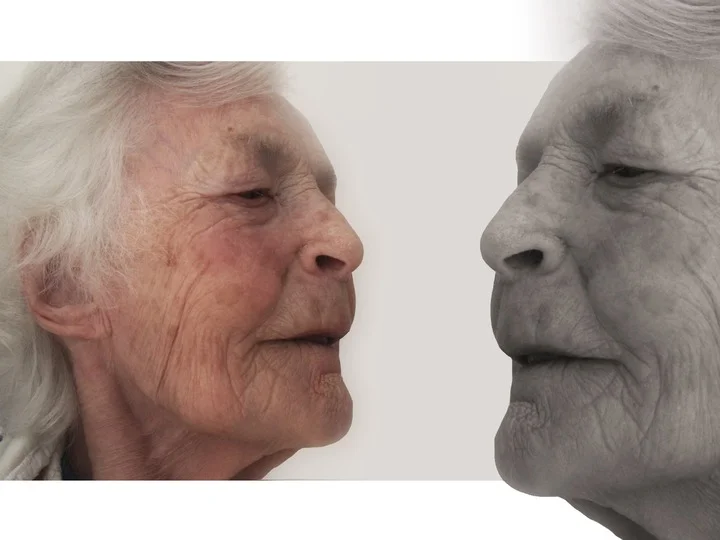Can People with Dementia Write?
Have you ever wondered if people with dementia can still put pen to paper and write? As caregivers, we often witness the challenges our loved ones face as they navigate the complexities of dementia. But amidst the struggles, one question remains intriguing – can they still express themselves through writing? In this blog post, we’ll delve into the world of dementia and explore the fascinating ability of individuals with dementia to write.
The Complexity of Dementia

Dementia is a condition that affects cognitive abilities, including memory, thinking, and communication. It can be caused by various factors, the most common being Alzheimer’s disease. As dementia progresses, it can impact both motor skills and language processing, presenting a challenge when it comes to writing. The ability to form coherent sentences, recall words, and maintain focus may diminish over time.
The Variability in Writing Skills

While dementia affects individuals differently, it’s crucial to recognize the variability in writing skills among those with the condition. Some may experience significant decline and struggle to write legibly or coherently, while others might retain their writing abilities to a certain extent. For example, a person with early-stage dementia might still be able to jot down a short note or maintain a diary with some guidance.
Drawing on Familiarity and Muscle Memory
In some cases, individuals with dementia may rely on familiarity and muscle memory to write. They may find comfort in writing tasks they’ve performed frequently throughout their lives. For instance, if they were avid cooks, they might still be able to jot down a simple recipe. Such activities might bring them a sense of familiarity and joy.
Creative Writing and Emotional Expression
Remarkably, creative writing can be a powerful outlet for emotional expression in people with dementia. It allows them to communicate thoughts, feelings, and memories in a non-linear manner. While the writing may not follow conventional structure or grammar, it can offer insights into their inner world. Encouraging creative writing can be an avenue to nurture their creativity and boost their self-esteem.
Assistive Technologies
In today’s digital age, technology has opened new possibilities for people with dementia to express themselves through writing. Assistive technologies, such as speech-to-text software and word prediction tools, can aid individuals with impaired motor skills and language processing. These tools allow them to communicate more effectively and regain some independence in their writing endeavors.
The Role of Caregivers

As caregivers, we play an integral role in supporting and encouraging individuals with dementia to write. Patience, understanding, and empathy are essential qualities to possess when assisting them. Providing appropriate tools and adapting writing tasks to their abilities can make a significant difference. Simple exercises, such as completing short sentences or filling in the blanks, can help maintain cognitive function and engagement.
Recognizing Frustrations and Limitations

It’s important to recognize that writing with dementia can be frustrating for individuals as they face the challenges of memory loss and language difficulties. Frustration might lead them to abandon writing altogether, which is perfectly normal. Rather than focusing solely on the result, the process of writing should be emphasized as a form of communication and self-expression.
Celebrating Small Achievements

As caregivers, we should celebrate even the smallest achievements in writing. A simple, well-formed sentence or a heartfelt note can bring joy to both the individual with dementia and their loved ones. Celebrating these victories encourages them to continue writing and reinforces the idea that their words hold value.
What does the research say?
In this study, scientists looked at how writing changes as we get older and how it’s affected by Alzheimer’s disease. Now, don’t worry, I’ll break it down into simpler terms.
First, they found that writing is a pretty complicated thing, and it didn’t show up until later in human history. Also, in our own lives, we don’t get really good at it until we’re older.
As we age, though, our writing doesn’t change much when it comes to the words we use, what those words mean, or how we put them together. So, the way we describe stuff in writing stays pretty consistent as we get older.
Now, spelling doesn’t go haywire as we age either. Old folks might mess up some words, but usually, it’s the unusual ones that trip them up. Think words with tricky accents or ones that have double letters.
But here’s where it gets interesting. When Alzheimer’s disease shows up, things start to go downhill. At first, it’s the content of what people write that gets messed up. Their writing becomes shorter and kind of all over the place.
After that, spelling starts to go too. But it’s not just regular spelling mistakes; it’s like their brain is trying to make things sound right even if they’re not. So, they might write “fonetik” instead of “phonetic.”
And as Alzheimer’s gets worse, writing turns into a real jumble. It mixes up words, their sounds, and how they’re written. Plus, their handwriting gets messier, and it’s harder to organize things on the page.
All of this trouble with writing in Alzheimer’s happens because different parts of the brain get messed up by the disease. It’s like a bunch of brain areas that help with language and writing are breaking down, like the parietal, temporal, occipital, and frontal regions.
So, in a nutshell, this study found that as we age, our writing doesn’t change much, but when Alzheimer’s comes along, it messes up our writing in a bunch of different ways because it messes up our brain.
Frequently Asked Questions (FAQs)
The ability to write coherently can vary among individuals with dementia. In the early stages, some may still be able to write relatively well, while others may face challenges with word recall and sentence formation as the condition progresses. Patience and understanding are crucial when encouraging writing in individuals with dementia.
Supporting someone with dementia in writing involves providing tools and exercises that cater to their abilities. Consider using assistive technologies, like speech-to-text software or word prediction tools, to aid those with motor or language impairments. Simple writing tasks, like completing sentences or maintaining a diary, can also encourage engagement and self-expression.
While it’s essential to encourage and celebrate their writing efforts, overly correcting grammar and spelling may discourage them from writing altogether. Focus on the content and meaning of their words rather than minor errors. Encouragement and positive reinforcement go a long way in nurturing their writing abilities.
Yes, creative writing can be highly beneficial for individuals with dementia. It serves as a powerful outlet for emotional expression and can help them explore their memories, feelings, and thoughts. Even if their writing lacks conventional structure, it can offer valuable insights into their inner world.
Frustration is normal when facing the challenges of dementia. If the person with dementia becomes frustrated while writing, it’s crucial to be understanding and supportive. Never force them to write if they are not in the mood. Instead, offer encouragement and try again later or explore other creative activities that they enjoy.
Engaging in writing activities can certainly have a positive impact on maintaining cognitive function in individuals with dementia. Writing exercises stimulate the brain, promoting memory recall, language skills, and problem-solving abilities. Regular writing tasks can help keep the mind active and engaged.
Celebrating small writing achievements is essential in boosting a person’s confidence and self-esteem. Offer praise and positive feedback for their efforts, no matter how simple the writing may be. Display their writing prominently or share it with family and friends, showing them that their words hold value and significance.
Conclusion
People with dementia can indeed write, although the extent of their capabilities may vary. Writing can be a meaningful way for them to communicate, express emotions, and hold on to their identities.
As caregivers, we have a vital role in supporting and encouraging their writing endeavors. Let’s cherish and embrace their words, regardless of any imperfections, for they offer us a glimpse into their world and hearts.
So, do you have any experiences or tips to share about encouraging writing in people with dementia? We’d love to hear your thoughts in the comments section below. Let’s engage in this conversation together!

